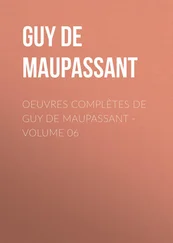What’s he up to, standing there watching him sleep?
It’s a job to be able to suck enough spit up in his mouth to frame the question. “What do you want?”
The way the old boy jumps, he can tell he’s returned the scare he got.
“Jesus, I thought you were asleep.”
“What do you want? Is something the matter?”
No reply straight away. Finally, “I wondered if you weren’t cold and needed some more covers.”
That’s likely. It’s only about a hundred degrees here, directly under the pitch of the roof. He’s cooking under a single thin cotton sheet. Sure he wants more blankets. Invent another one. But he’s polite. “No,” he says, “I’m fine.”
The old boy knows he hasn’t made a lick of sense. He fumbles to lay hands on an excuse. “It cools off worse than you think, nights. It does. You don’t want to catch a cold. Summer colds are the worst.” And with that he slides off, drifts out of the door, floating white in the moonlight like a sheet hung in the dark.
What a half-ass explanation that was. Of course, nobody thinks he’s owed an explanation. You can do with him pretty much as you like. Drag him clear across the country, sneak into his room like some demented axe murderer or something, that’s hunky-dory, that’s acceptable. He doesn’t need to know the why of anything.
Still, it’s hard to stay mad at him. Daniel likes the old fart even though he knows he’s not supposed to. His mother’s not in favour of it. There’s another thing for him to figure. Why’d she drag him here, on purpose, to live with somebody he’s not supposed to like? Where’s the sense in that? It’s like some crazy test. Which he isn’t passing.
Why shouldn’t he like him? The old man is teaching him to drive the truck. The old man pays him to work in the garden. The old man argues baseball with him during the “Game of the Week.” Not that he’s all sweetness and light by a long shot, the old man. Maybe he doesn’t come at you the way she does, full-bore, pointing out that this is wrong with you and that is wrong with you and when are you ever going to learn? That’s not his style. He sort of crumbles up the ground under your feet and leaves you standing in thin air.
Take the other day. He’s standing combing his hair in the mirror and the old man happens along, stops, hangs on the door, watches. Never said a word. It was his smile. It made him feel ridiculous, that smile. What’s he laughing at? What’s so funny? Then Daniel sees himself start to change in the mirror, before his own eyes. It isn’t a pretty sight. He stops looking like James Dean and starts looking like a scrawny twelve year old with too much hair for his puny body with the matchstick arms that aren’t big enough to lay a tattoo down on, unless it was a tattoo of a sparrow instead of an eagle. Another thing. He can’t grow sideburns. So who’s he kidding? What he is, is some left out in the rain, shrunken-up excuse of a James Dean.
The worst was Daniel couldn’t give ground. Not while the old man was operating on him with that smile. It was like an eye-balling contest. You better not look away because that means you haven’t got the nerve. So he acted like the old man was a bad smell that ought to blow away. But it was tough watching your ears turn red in the mirror and this sort of pitiful sneer edging on and off your lips because you couldn’t hold it. So in the end he did lose his nerve because he couldn’t take any more of that smile.
“You waiting for this mirror or something?” he asked.
“Well, I had it in mind to shave,” said the old man. “But you just carry on. Beauty before age for this one time only. Besides, I never had a chance to see one of those complicated hairdos get built before.”
His mother had been after him for over a year to lose the greaser look but she hadn’t been able to get him to budge. Now he’s considering a scalping, a brushcut, just so the old man doesn’t ever google him like this again.
In this house there’s no fooling yourself that being different could be like it is in the movies. In the movies, no matter what kind of shit you’re taking from people up on the screen, there’s always the audience that knows the truth about you, is hoping for you, even admires you. There’s no audience in this house. In this house it’s too hard to be a rebel.
It can be an interesting place to live, though, Daniel has to give it that. The people who are always dropping by make it so. Mostly they come to play cards and borrow money. Except for Huff Driesen, the old diabetic who can’t bring himself to give himself a needle. His daughter usually does it for him but when he goes off on a toot he doesn’t dare go to his daughter’s because she’ll read him the riot act and spoil his fun by going on about how a sick man like him shouldn’t be drinking. So whenever he’s been hitting the sauce he brings his needle over and Daniel’s grandfather gives it to him. Daniel has seen it, right in the kitchen. Huff with his shirt pulled up, his eyes screwed tight so he doesn’t see what’s going to happen to him, and his mouth squinched so tight he appears to be trying to swallow his own face. And the old man taking aim at his big white belly like he’s getting ready to fling a harpoon.
Mr. Stutz says the other ones, the borrowers, come to his grandfather because he’s the only man of their kind who has money. The doctor and lawyer have educated money, which is a different thing all together. If you asked them for an interest-free five dollars they’d likely try to determine if it was going to a worthy cause. Your grandfather, says Stutz, isn’t like that. With him it isn’t necessary to humble yourself for five dollars. You just say, “Can you spare me five until I get my old-age pension cheque?”
And some five dollars, Daniel could tell, weren’t loans at all but hand-outs, even though the borrowers insisted on scribbling I.O.U.’s on the backs of envelopes or cigarette boxes. “No, no,” his grandfather would say, “not necessary. A man’s word is his bond.”
And the man might say, “But, Jesus, Alec, this is proof of my good intentions. Legal, so you’ll know you’ll get your money back.”
His mother doesn’t have a very high opinion of his grandfather’s friends. She declares they’re taking advantage of an old fool who’s deluded himself into thinking he’s lord of the manor. It’s pathetic. Some lord, some manor. A manor run by the peasants, she says.
At least they’re interesting peasants. In a way he’s grateful to them, as grateful can be. Because if his mother wasn’t worked up about them, she’d be worked up about him. He’s tired of being picked on. He remembers something his mother once told him. “Don’t forget,” she said, “that it’s the tallest tree in the forest that attracts the lightning.” Well, he’s been the tallest tree in his mother’s forest for long enough and it’s good to see somebody else catch the lightning for once. It’s why he wanted a brother so badly, somebody to take a fair share of the bolts that were always jolting him. Finally, he’s getting some relief. You’d have to be blind not to see who the tallest tree in the forest is now. His grandfather. He’s fairly fried already. And what lightning he doesn’t catch gets spread among the scroungers – for tracking in dirt, slamming the screen door, sitting on chairs with grease on their pants, and timing their visits around meal times or whenever there’s anything good on TV. If the truth were known, Daniel feels as if he’s on vacation.
Daniel enters Main Street. It’s wide and empty, stores locked tight, blinds drawn to protect the goods in the windows from the sun. It makes him feel proud that the two biggest buildings on the street, the hotel and The Palladium theatre, are owned by his grandfather. At this hour there’s not a sign of life stirring anywhere, not even any vehicles parked outside the door of the hotel beer parlour. This is because the law requires the beer parlour to close for the supper hour. Mr. Stutz says it should be supper hour all the live-long day then. He’s death on drinking. The only one of his grandfather’s businesses that Mr. Stutz refuses to work in is the beer parlour, because he says it goes against his principles to sell men what robs them of their senses.
Читать дальше












